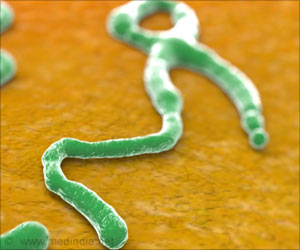Hospital officials have confirmed that an American doctor being treated for Ebola in Nebraska was given a blood transfusion.

He has been given plasma from Kent Brantly, 33, another US doctor who was infected over the summer with Ebola while treating patients in the Liberian capital, Monrovia.
Brantly recovered after being cared for in an Atlanta hospital.
Sacra has been upgraded from serious to good condition, after a week of hospital care, plasma and an experimental treatment doctors declined to name.
Phil Smith, director of the Nebraska Medical Center biocontainment unit, said it is unclear which treatment has helped Sacra improve.
"We decided we were more interested in saving Rick than trying to do a pure study so we just administered everything we had access to, basically," Smith told reporters on Thursday.
Last week, global health experts in Geneva agreed that blood therapies and convalescent serums can be used to fight Ebola immediately, while safety trials begin for potential vaccines.
"A blood-derived product can be used now."
Experts think the presence of Ebola antibodies in the blood of recovered patients may help others fight the disease.
The largest-ever outbreak of Ebola fever has now killed more than 2,400 people and infected nearly 5,000 in West Africa, the UN health agency said on Friday.
"In the three hardest-hit countries (Liberia, Sierra Leone and Guinea), the number is moving faster than the capacity to manage them," head of the World Health Organization, Margaret Chan told a news conference in Geneva.
Source-AFP
 MEDINDIA
MEDINDIA




 Email
Email










